Business Law: Competition, Monopolies, and EU Regulations Analysis
VerifiedAdded on 2023/02/09
|9
|416
|95
Report
AI Summary
This report delves into the realm of business law, specifically examining the concepts of monopolies, competition, and their regulatory frameworks, with a particular emphasis on EU regulations. It begins with an introduction to the core principles of business law, highlighting its role in safeguarding individuals from exploitative practices. The report then explores the practical application of these principles through a case study involving credit agreements for personal use. Furthermore, it provides a detailed analysis of anti-competitive practices and the legal bodies, such as the Competition Commission, responsible for preventing them. The report also covers the implications of a dominant market position within the EU's common market and discusses the exemptions to potentially anti-competitive practices as outlined in the Treaty of Rome. References to relevant legal frameworks, including the Competition Act 1998 and the Enterprise Act 2002, are included to provide a comprehensive understanding of the subject matter.
1 out of 9

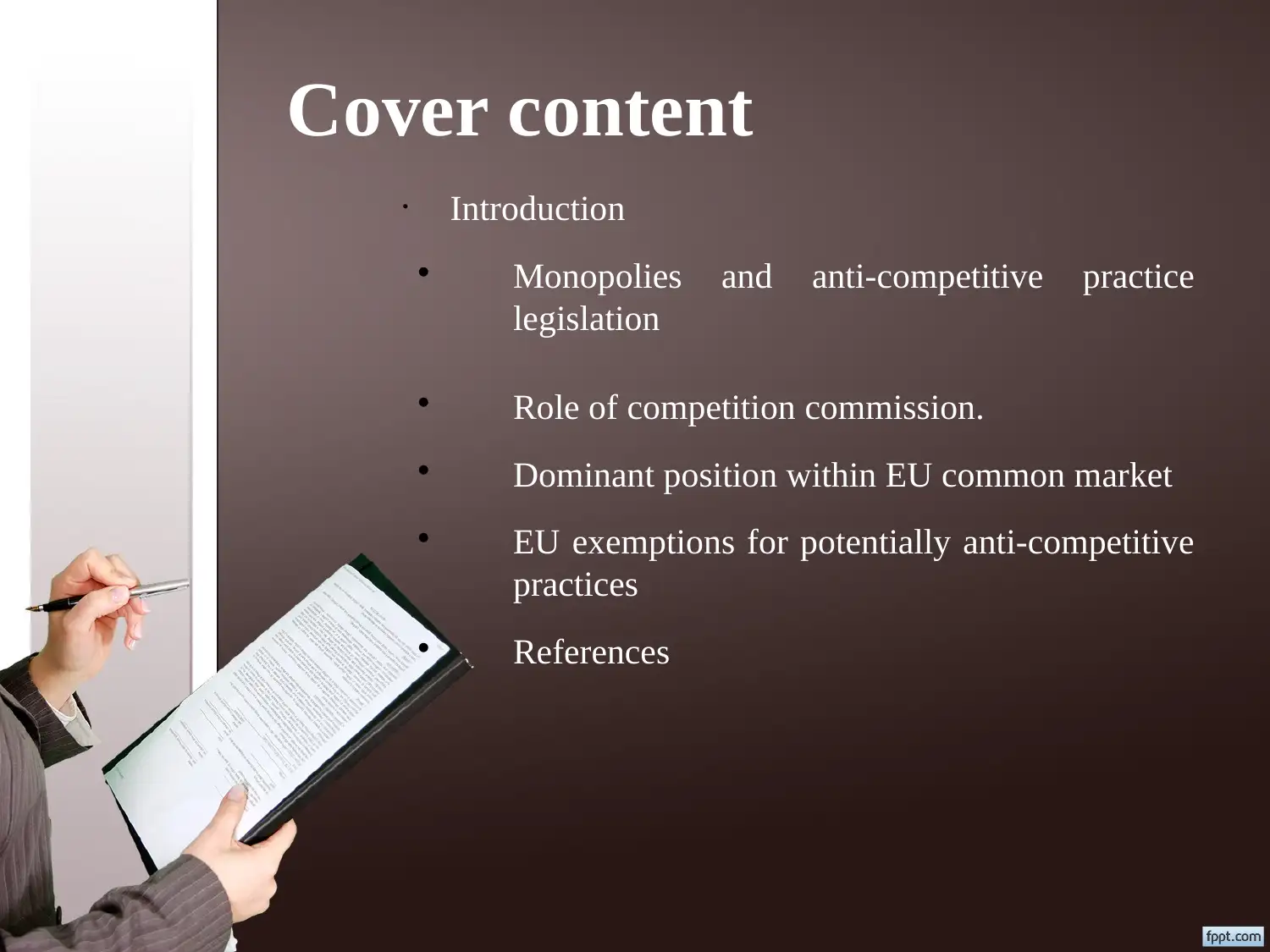


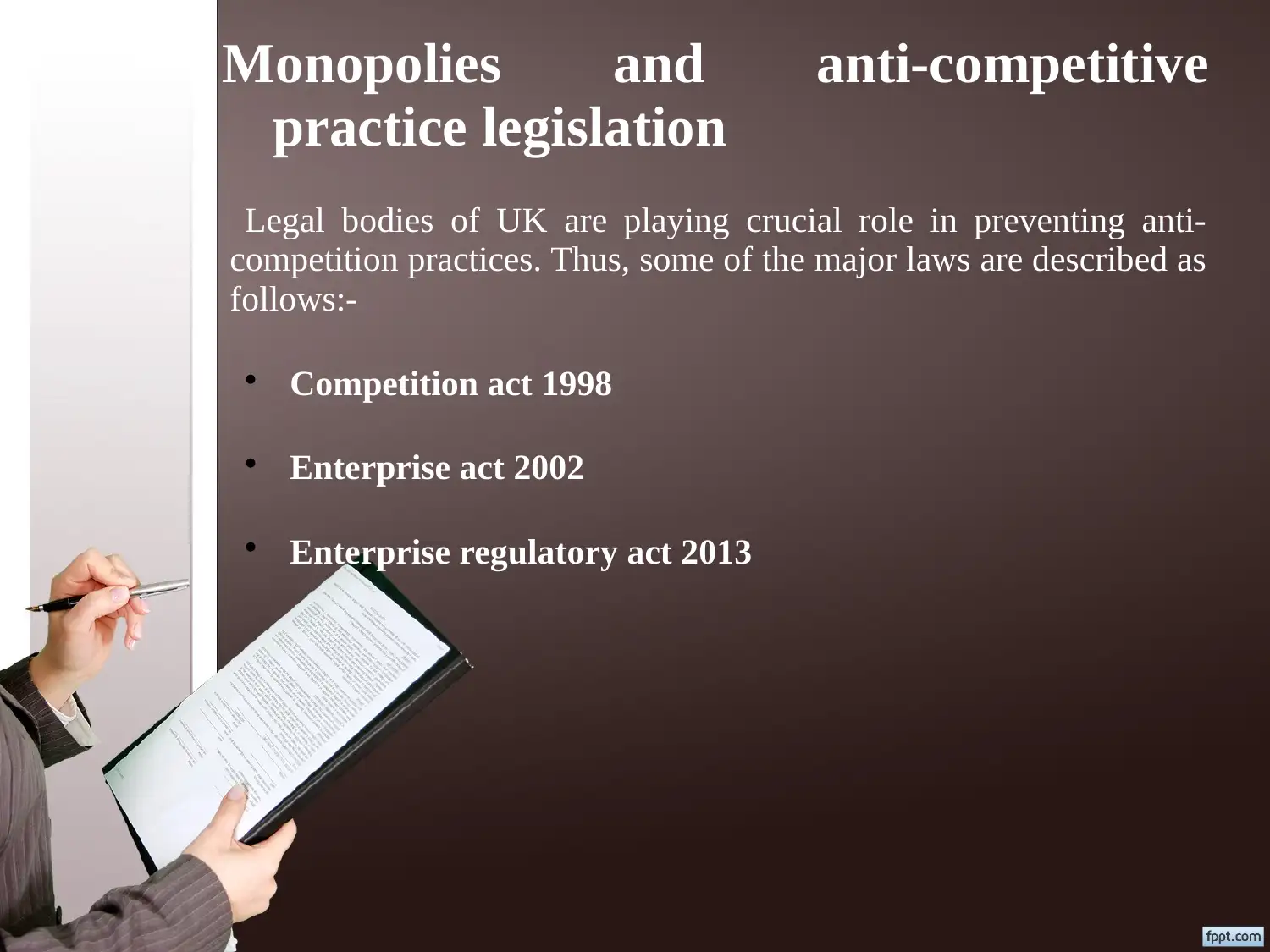
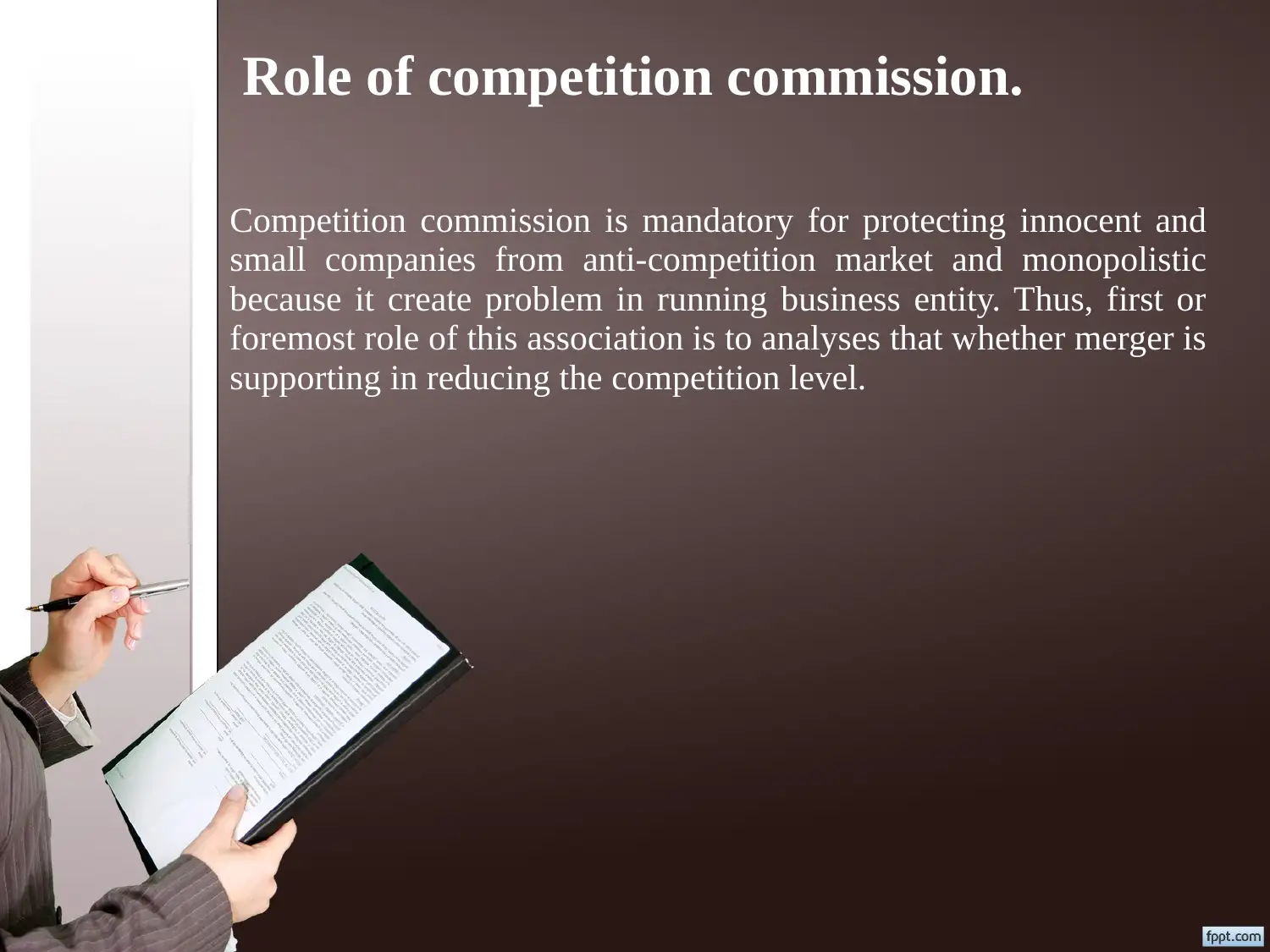
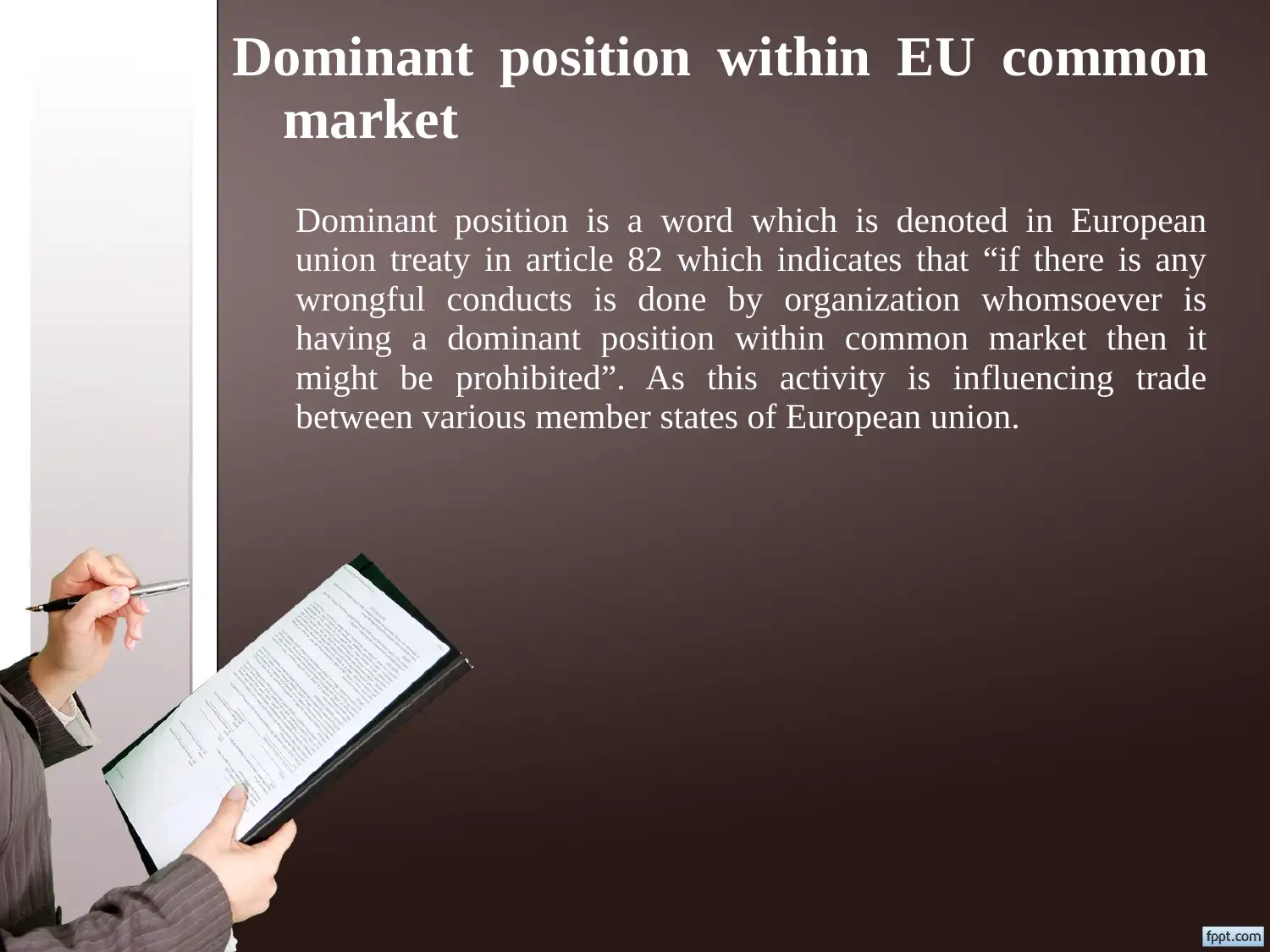
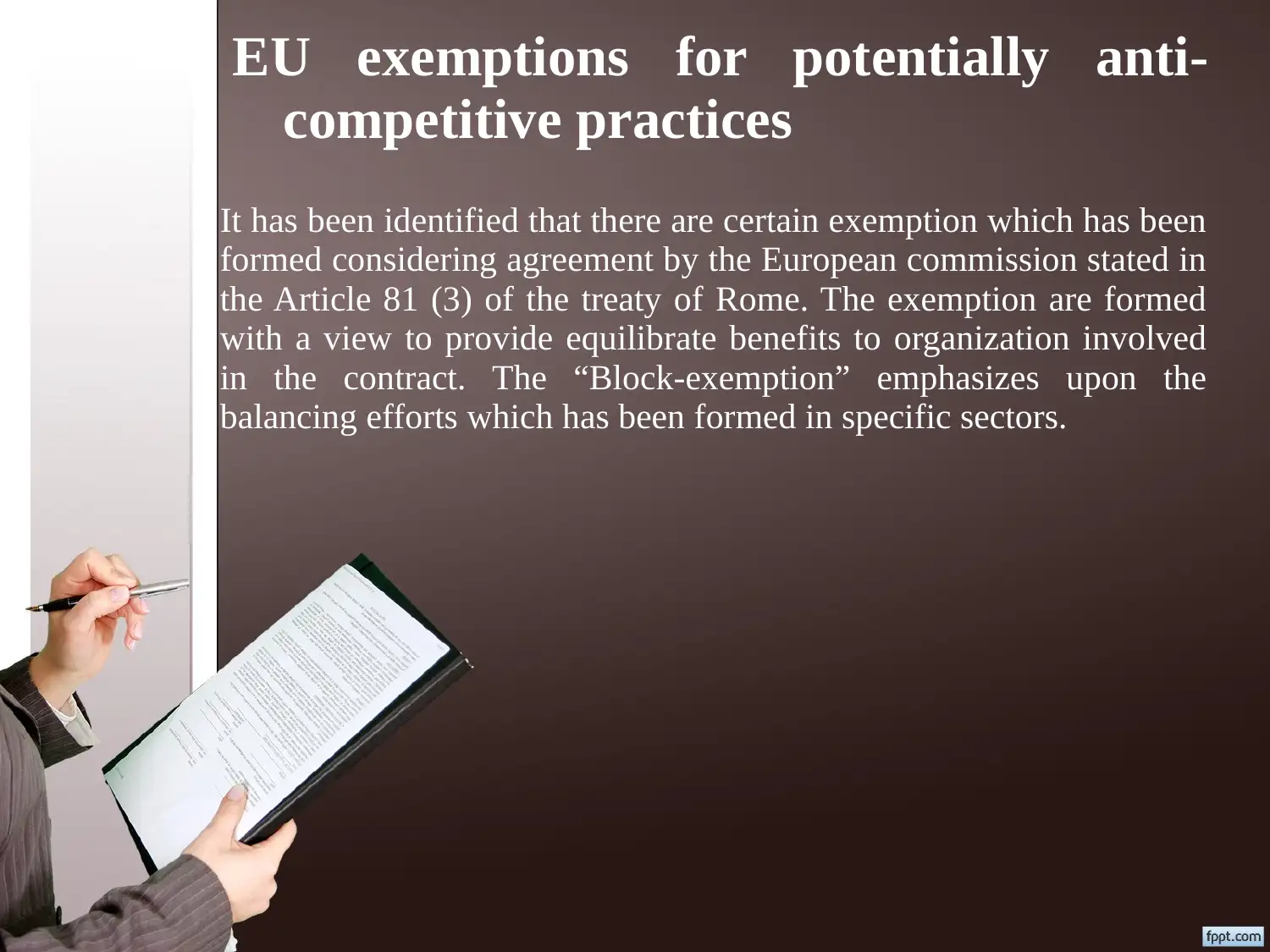
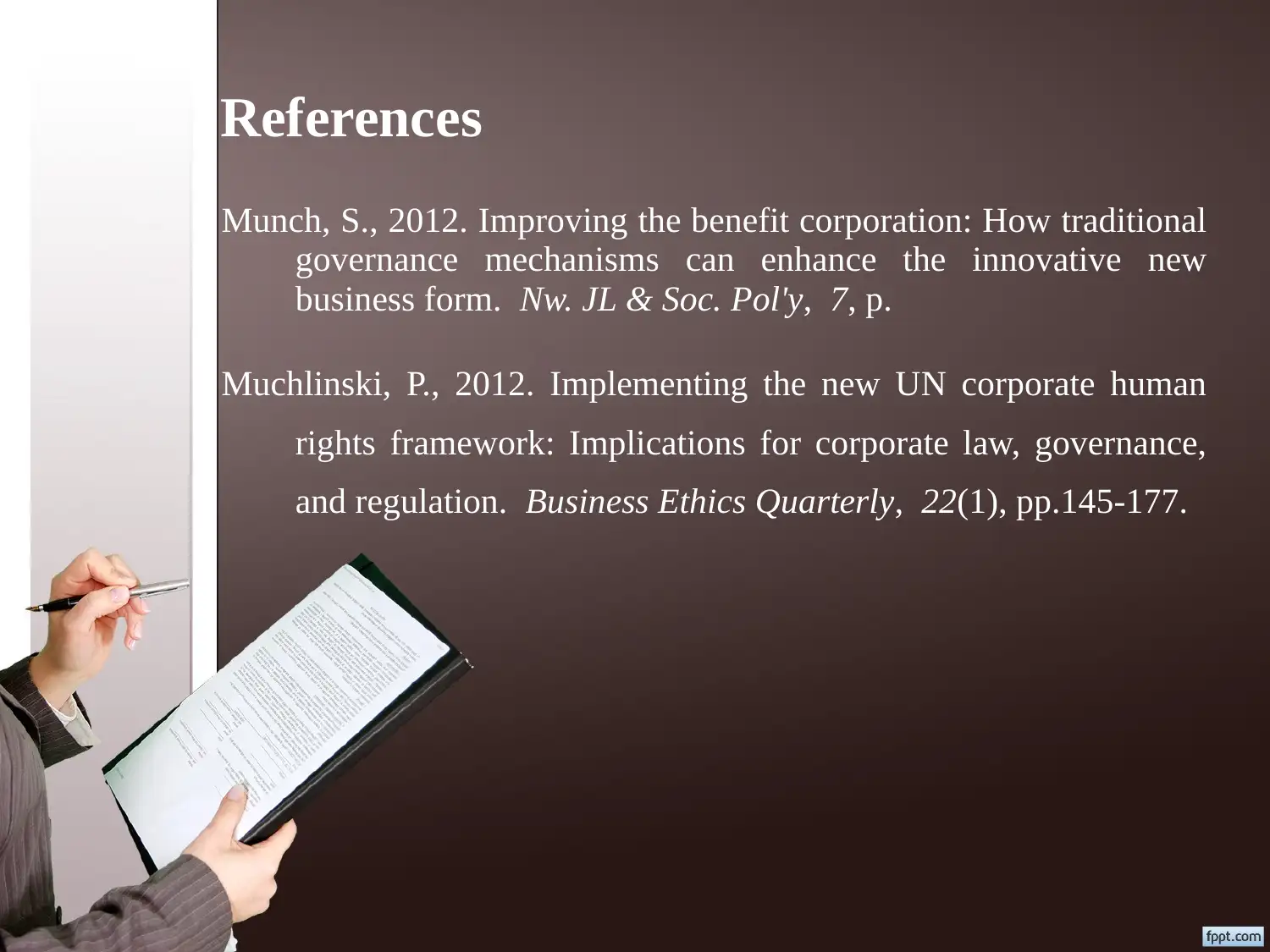







![[object Object]](/_next/static/media/star-bottom.7253800d.svg)